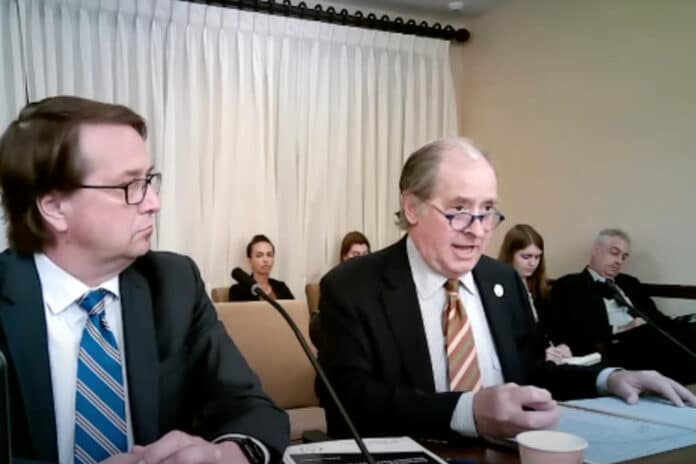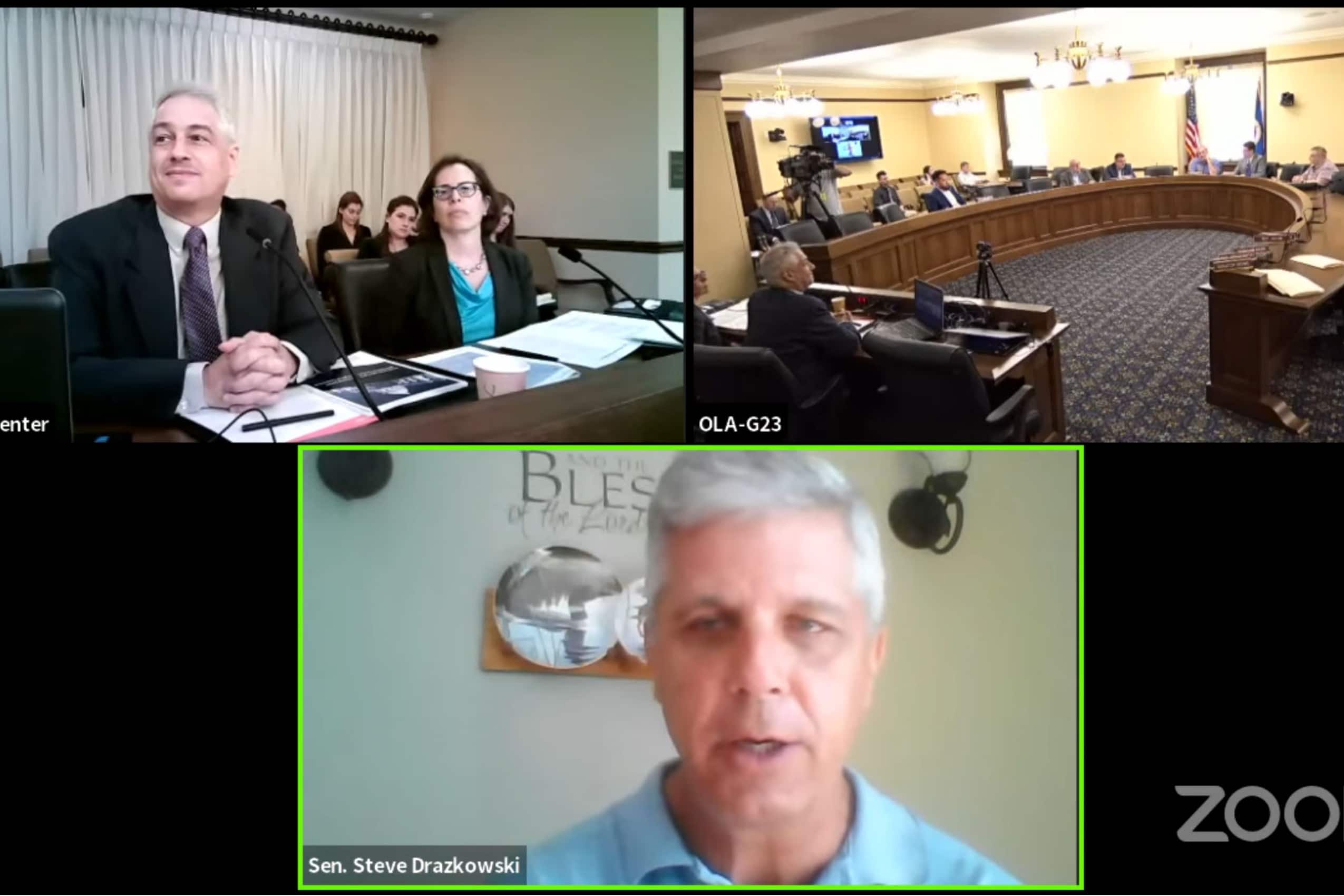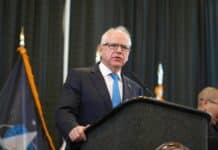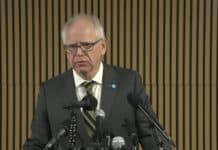
Legislators from both sides of the political aisle took turns putting the Metropolitan Council on blast Wednesday morning during a presentation of the Office of the Legislative Auditor’s second program evaluation report on the maligned $2.76 billion Southwest light rail project.
In March, the OLA’s first evaluation report concluded the Met Council was not fully transparent with the public about significant cost overruns for the Southwest light rail project, and continued to make decisions that increased the cost even as its committed funding dried up.
The 74-page report released Wednesday focused specifically on construction contract oversight of the project to extend Green Line from Minneapolis to Eden Prairie. It details instances where Met Council failed to enforce several aspects of its key SWLRT construction contracts and did not have adequate documentation of its construction contract oversight. It includes background on the project, analysis of the project’s change order processes, and details on cost estimates and negotiations with contractors and contract requirements.
The report includes a six-page response from the Met Council to the OLA findings, and a letter from Met Council Chair Charlie Zelle to Legislative Auditor Judy Randall where he writes that “several of the report’s recommendations do not align with the U.S. Department of Transportation’s Federal Transit Administration guidance or construction law, are not appropriate for a project of this size and complexity, and in some instances could have contributed to additional delay.”
While Randall told the 12-member Legislative Audit Commission on Wednesday that its latest program evaluation report on the project concluded no laws were broken, she said there were several instances where best practices were not followed when it came to Met Council oversight of construction contracts. The report concluded the Met Council failed to enforce many of its agreements with its contractors, which contributed to hundreds of millions of dollars in cost overruns and a four-year delay in its scheduled completion.
Randall also told legislators during the hearing that the OLA is conducting a financial audit of some construction contract transactions related to the project, “and I don’t know what we are going to find.”
“As this project, excuse the pun, started to go ‘off the rails,’ and there are more questions, I would expect an oversight body (like the Met Council) to ask themselves more and more questions and get more and more into the details,” Randall said. “I do think there is an important role there that we didn’t see them being engaged in. If the [Met Council] is not informed enough to ask those questions I think they needed to get informed.
“I’m not convinced the Met Council is the right entity to be the responsible party” for future light rail projects, Randall added.
‘We are not perfect,’ Met Council chair says
SWLRT has been under the microscope of legislators in both major parties since early 2022, when it was found to be more than $700 million over budget and four years behind its originally scheduled completion. A bipartisan legislature directed OLA to conduct a series of reports, the first of which was released last fall that dug into how the project went over budget and well beyond its original timeline.
The project, which will include 16 new transit stations along its 14.5-mile route, is now set to be completed in 2027. As recently as two years ago, the Met Council had said the project would open by this year.
Following the OLA presentation of its evaluation report, Met Council Chair Zelle — recently re-appointed by Gov. Tim Walz to a new four-year term — stood for what were at times scathing questions and critical commentary from both DFL and Republican legislators. Zelle rebutted allegations that the project budget overruns and delays were the result of inept project management and leadership.
“We are not perfect,” Zelle told legislators at the hearing, adding that the body is creating a new infrastructure project management division.
“I stated these costs were inevitable at the beginning of the project. I didn’t say we knew. We should have known. And we didn’t,” he continued. “And we have changed a lot of our risk analysis, transit advancement policy, processes for estimating in a very complex project … And the fact that this is occurring in other projects around the country speaks to the nature of these mega projects.”
Sen. Scott Dibble, DFL-Minneapolis, whose district includes portions of the SWLRT project, criticized Met Council leadership for lack of oversight. Dibble sponsored a bill this spring that would create a task force to evaluate whether the Met Council should become an elected body. Currently, the board is appointed by the governor.
“These are, in many instances, high-ranking officials, clearly making decisions in the dark,” Dibble said. “Ultimately, they are responsible. They should have been probing more.”
Sen. Steve Drazkowski, R-Mazeppa, said the report’s conclusions are very troubling.
“It seems we’ve got an agency that is rogue,” Drazkowski said. “We’ve got a large piece of government that’s operating rogue and not apparently even contemplating its fiduciary responsibilities to the taxpayers of Minnesota. The question remains with all of us is, why?”

While Randall writes in the report that the Met Council cooperated with the OLA during the process, Sen. Mark Koran, R-North Branch, was more critical.
“The [Met] Council was less than cooperative with the OLA and after this report, we can see why,” said Koran, vice chair for the Legislative Audit Commission.
“Rather than wait for some sense of contrition from the current Met Council, Gov. Walz can decide to instill leadership and accountability in this body,” Koran said. “As the 2023 (Met Council) appointment process is currently happening, Walz can put real leaders who value accountability and transparency on the Met Council. Or he can continue down the same failed path. It’s up to him.”
Senate has yet to vote up or down on Zelle appointment
Although Gov. Walz has also criticized the years of delays and overspending on the SWLRT, in January he announced he was reappointing Met Council Chair Zelle to a new four-year term. Gubernatorial cabinet appointees can serve in their post until they are either confirmed or not confirmed by a vote of the full Minnesota Senate.
In May, a Senate Transportation Committee chaired by Sen. Dibble voted to recommend appointment of Zelle to a new term on a divided voice vote, with Republicans voting against the confirmation. A full vote never came before the full Senate, where Democrats hold just a one-seat advantage.
Hank Long
Hank Long is a journalism and communications professional whose writing career includes coverage of the Minnesota legislature, city and county governments and the commercial real estate industry. Hank received his undergraduate degree at the University of Minnesota, where he studied journalism, and his law degree at the University of St. Thomas. The Minnesota native lives in the Twin Cities with his wife and four children. His dream is to be around when the Vikings win the Super Bowl.











